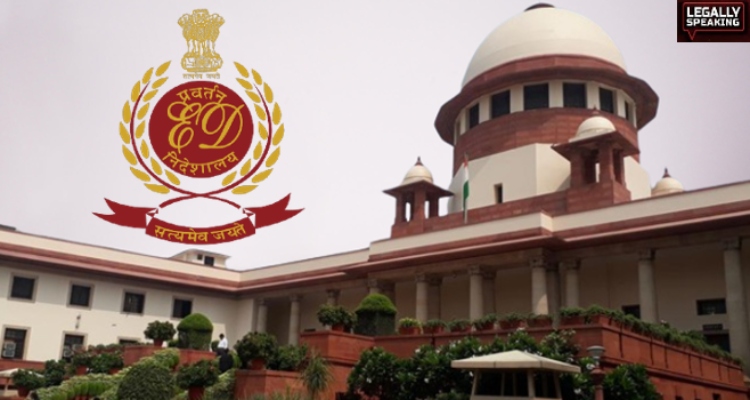
The Supreme Court on Wednesday likened the act of detaining an accused without trial to detention, emphasizing its impact on liberty. The Court criticized the Enforcement Directorate (ED) for its practice of submitting supplementary chargesheets in money laundering cases, aiming to deprive the accused of their right to default bail.
A bench of Justices Sanjiv Khanna and Dipankar Datta raised objections to the ED’s filing of four supplementary chargesheets, with the latest dated March 1, 2024, in a money laundering case linked to alleged illegal mining in Jharkhand.
The apex court entertained the default bail plea of Prem Prakash, purportedly an associate of former Jharkhand chief minister Hemant Soren. Prakash had been apprehended in August 2022, following raids where two AK-47 rifles, 60 live rounds, and two magazines were reportedly discovered at his residence in Ranchi. He faces charges of money laundering and violations under the Arms Act.
The bench apprised Additional Solicitor General SV Raju, representing the ED, that despite the submission of four supplementary chargesheets, the investigation in the case is still ongoing.
“We are putting you (ED) on notice. (Under the law) You cannot arrest a person without the investigation in the case being complete. A person cannot be put in custody without the commencement of trial. It is akin to detention and affects the liberty of an individual. In some cases, we have to settle this issue,” the bench informed Raju.
Justice Khanna emphasized that an accused cannot be deprived of default bail benefits by filing supplementary chargesheets.
“The whole object of default bail is that you do not arrest until the investigation is complete. You cannot say that a trial will not commence unless the investigation in the case is complete. You cannot keep on filing supplementary chargesheets and keep the person in jail without trial,” he remarked.
Justice Khanna highlighted that the petitioner has been incarcerated for 18 months, and successive supplementary chargesheets are prolonging the trial.
“This is what is bothering us. Trial has to begin when you arrest an accused. You cannot deny the benefit of default bail for delayed commencement of trial. Default bail is a right of the accused and it cannot be denied by filing supplementary chargesheet,” Justice Khanna stated.
He added that even section 45 of PMLA does not prohibit bail due to prolonged incarceration.
“We have held this in the Manish Sisodia case (Delhi excise policy scam case), if there is long incarceration and undue delay in commencement of trial, the court can grant bail. Section 45 does not bar the grant of bail because this right flows from Article 21 (protection of life and personal liberty) of the Constitution,” Justice Khanna clarified.
The bench raised several queries to Raju, who requested a month’s time to respond, citing concerns that the accused, being influential, might interfere with witnesses and evidence if granted bail.
The apex court instructed Raju to address all queries within a month and scheduled further hearing for April 29.
Advocate Siddharth Agarwal, representing Prakash, noted that his client’s name was not initially mentioned in the FIR, and no transactions were found between him and the co-accused.
He pointed out that the statements of two key witnesses do not directly implicate Prakash.
The apex court directed the special PMLA court overseeing Prakash’s trial to expedite the proceedings.




